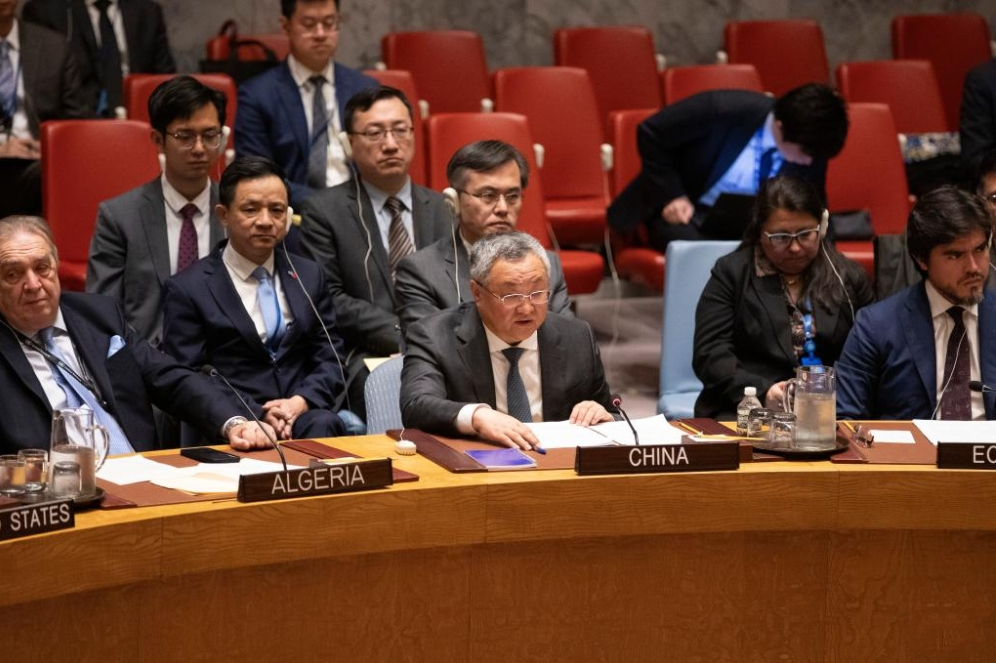Global Security Initiative: Harmony in Peacebuilding

The Global Security Initiative defines it as a security governance structure centered on the United Nations, and its efforts are to prevent wars and lead post-war reconstruction.
Addressing the common challenges facing humanity and seeking to build an open civilization based on dialogue, negotiation and cooperation requires another strategic pillar for its achievement: security.
For this reason, during the annual meeting of the Boao Forum for Asia held from April 20 to 22, 2022, in his opening speech, President Xi Jinping proposed the Global Security Initiative as China’s response to solve global security issues.
The Global Security Initiative (GSI) defines it as a security governance structure centered on the United Nations, and its efforts are to prevent wars and lead post-war reconstruction. It calls on various countries playing leadership roles in global security matters to reject hegemony and intimidation and build peaceful coexistence, generating stable and balanced relations among states.
The GSI assumes several basic concepts and principles to establish a commitment to a vision of common, comprehensive, cooperative and sustainable security, while respecting the sovereignty and territorial integrity of all countries, in strict adherence to the Charter of the United Nations. It is a path that can only be taken through multilateralism, rejecting the resurgence of Cold War mentalities, bloc confrontation, and hegemonism.
With the GSI, China supports the enhancement of the ASEAN-centered regional security cooperation mechanism and architecture in Southeast Asia, and its consensus-building method. It also seeks to jointly establish a new security framework in the Middle East, supporting countries in the region to strengthen dialogue and improve their relations through organizations such as the League of Arab States (LAS) and other regional organizations to play constructive roles.
The GSI also supports the African Union to resolve regional conflicts, fight terrorism and safeguard maritime security. As for the countries of Latin America and the Caribbean, the GSI supports the active implementation of the commitments set forth in the Proclamation of Latin America and the Caribbean as a Zone of Peace.
Geopolitical tensions and the explosion of armed conflicts have become constant in the international community, affecting global stability and security. Various approaches have emerged as a result. For example, there is a difference between the American vision of peacekeeping and the European approach to peacemaking.

While the American model is the maintenance of peace through ending violence by separating the protagonists using military force, the traditional European vision is based on the rapprochement between them to identify and address the root causes of the conflict. In both cases, they partners with United Nations peacekeepers’ operations, whose role is to keep the peace during and after a conflict.
Unlike these approaches, China’s proposal, the GSI, recognizes that the world is not peaceful, and hegemonism persists intensely in the international community. The Cold War bloc thinking is unnecessary for the progress of humanity. In addition, regional conflicts are intensifying, and traditional and non-traditional security issues are intertwined. At the same time, the desire and pursuit of peace and security by peoples worldwide are more urgent than ever.
The war in Ukraine, which began on February 24, 2022, has represented a concrete event of inestimable importance on the international stage, with geopolitical, economic and commercial repercussions at a global level. This military struggle, together with other armed conflicts that are taking place in various regions of the planet, such as Yemen, Libya, Sudan, Israel-Palestine, among others, has highlighted the urgent need to address security challenges at the global level.
The devastating effects of armed confrontations on the civilian population, the impact on national economies, and the tensions they unleash on the international scene, have emphasized the importance of coordinated and firm action in favor of world peace and stability. In this context, the Global Security Initiative emerges as a strong response to the security challenges facing the international community.
With the aim of promoting cooperation and dialogue among nations, this initiative seeks to establish a framework for collaboration that allows addressing the underlying causes of conflicts, promoting respect for human rights and strengthening mechanisms for the prevention and peaceful resolution of disputes, always based on the UN Charter and the search for shared values and principles.
The GSI has won the support of more than 80 countries who have joined this proposal. In it, China is taking a firm and decisive step towards the political settlement of war crises through dialogue and negotiation. For this reason, the impetus for peace talks is and will be the way for the parties to meet, rather than increasing tensions and dissent.
From a geostrategic logic, the GSI exposes the vision of a different way of understanding the international order in a safer global environment for all peoples, and is considered as a fundamental component to bring prosperity to the less developed regions of the planet.
The author is Director, PhD in Public and Business Management, Central American Institute of Public Administration (ICAP/SICA), and Researcher of Center for Historical Research of Central America, University of Costa Rica.
The article reflects the author’s opinions, and not necessarily the views of China Focus.
 Facebook
Facebook
 Twitter
Twitter
 Linkedin
Linkedin
 Google +
Google +










